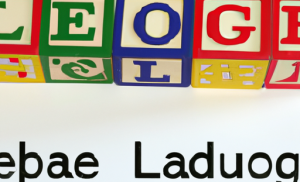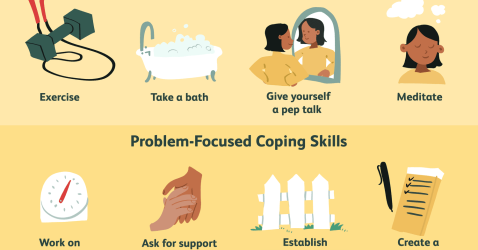Deep Listening: A Practice For Compassionate Self-Care
In this article, you will discover the power of deep listening as a practice for compassionate self-care. By truly tuning in to yourself and others, you can cultivate a sense of empathy, understanding, and connection. Deep listening goes beyond simply hearing words; it involves being fully present and attuned to the emotions and intentions behind them. Through this practice, you can enhance your relationships, reduce stress, and nurture your own well-being. So, sit back, relax, and open your ears, as we explore the transformative benefits of deep listening.
Understanding Deep Listening
What is deep listening?
Deep listening is a practice of fully engaging our attention and presence to truly understand and connect with others. It goes beyond just hearing the words someone is saying, but also involves being attuned to their emotions, body language, and overall communication. Deep listening requires being fully present in the moment and suspending judgment or preconceived notions. It is about creating a safe and open space for the other person to feel truly heard and understood.
The importance of deep listening in self-care
Deep listening is not only beneficial for building and strengthening relationships, but it is also an essential self-care practice. By being able to truly listen to others, we gain a better understanding of ourselves and our own emotions. Deep listening allows us to cultivate empathy, compassion, and understanding, which in turn supports our emotional well-being. It helps us create deeper connections with others and fosters a sense of belonging and community. Engaging in deep listening also enables us to reflect on our own thoughts and feelings, leading to greater self-awareness and personal growth.
Why Practice Deep Listening?
Benefits of deep listening for self-care
Practicing deep listening has numerous benefits for our overall well-being and self-care. Firstly, it allows us to develop stronger and more meaningful connections with those around us. When we truly listen to others, we create an environment where they feel valued and heard. This, in turn, strengthens our relationships and increases our sense of belonging and connection.
Furthermore, deep listening supports emotional well-being by enabling us to process and understand our own emotions. By listening attentively to others’ experiences, we can gain insights into our own emotional landscape and develop a greater sense of self-awareness. Deep listening also helps us regulate our own emotions by allowing us to be present with our feelings and experiences in a non-judgmental way.
How deep listening supports emotional well-being
In a world filled with distractions and hurried conversations, deep listening offers an opportunity to slow down and truly connect with others. When we engage in deep listening, we create a space for others to express themselves authentically, which can lead to a greater sense of emotional well-being for both parties.
Deep listening allows us to validate and acknowledge the emotions of others, fostering a sense of emotional safety and trust. When we feel heard and understood, it can help us process and navigate our own emotions more effectively. By practicing deep listening regularly, we can cultivate a greater capacity for empathy and compassion, leading to improved emotional well-being for ourselves and those around us.
Getting Started with Deep Listening
Creating the right environment
Creating the right environment is crucial for deep listening. Find a quiet and comfortable space where you can have an uninterrupted conversation. Eliminate distractions such as phones, TVs, or other devices that may divert your attention. Make sure the setting feels safe and conducive to open communication, allowing the person you’re listening to feel comfortable and supported.
Finding time for deep listening in your daily routine
Finding time for deep listening in your daily routine is essential for building this practice. Set aside dedicated moments where you can engage in conversations without any time pressures or distractions. It could be during mealtime, while taking a walk with a loved one, or simply through intentional conversations before bedtime. By purposefully making time for deep listening, you prioritize the well-being of yourself and others.
Developing Deep Listening Skills
Active listening techniques
Active listening is a key aspect of deep listening. Practice techniques such as maintaining eye contact, nodding to show understanding, and using verbal encouragers like “uh-huh” or “tell me more.” Reflect back what the person has said to ensure clarity and comprehension. Avoid interrupting or formulating responses while the other person is speaking. Instead, focus on truly understanding their perspective and experiences.
Cultivating empathy and understanding
Deep listening involves cultivating empathy and understanding. Put yourself in the other person’s shoes, considering their feelings and experiences. Stay curious and open-minded, suspending judgment or assumptions. Practice empathy by tuning in to the emotions conveyed through verbal and non-verbal cues. By nurturing these qualities, you create a safe space that encourages authentic sharing and connection.
Enhancing Emotional Connection
Listening to our own emotions
Deep listening is not limited to listening to others; it also involves attentiveness to our own emotions. Take the time to listen to yourself and acknowledge your feelings and needs. Practice self-compassion and self-care by giving yourself the same level of attention and understanding that you offer others. By listening to your own emotions, you can better understand and address your needs, ultimately fostering emotional well-being.
Strengthening relationships through deep listening
Deep listening is a powerful tool for strengthening relationships. By truly hearing and understanding others, we can build trust and create strong emotional bonds. Deep listening allows us to be fully present and attuned to the needs and desires of those we care about. It fosters empathy, compassion, and intimacy, helping to cultivate deeper and more meaningful connections with loved ones.
Self-Reflection and Self-Awareness
Using deep listening as a tool for self-reflection
Deep listening serves as a valuable tool for self-reflection. When we listen deeply to others’ thoughts and experiences, it can prompt us to reflect on our own beliefs, values, and perceptions. By actively engaging in deep listening, we gain insights into our own thoughts and feelings, encouraging personal growth and self-awareness. Use this practice to question and challenge your own assumptions, fostering a deeper understanding of yourself.
Building self-awareness through listening to others
Listening to others is an opportunity to learn more about ourselves. By truly listening and seeking to understand others, we gain valuable insights into different perspectives, beliefs, and experiences. This exposure allows us to expand our self-awareness and challenge any biases or assumptions we may hold. Deep listening helps us develop a more nuanced understanding of the world and the people within it, contributing to personal growth and an open-minded approach to life.
Overcoming Challenges in Deep Listening
Dealing with distractions and external noise
In our fast-paced world, distractions and external noise can hinder deep listening. To overcome these challenges, create a mindful and intentional listening environment. Turn off electronic devices, find a quiet space, and focus solely on the speaker. Practice concentration and maintain eye contact. If distractions arise, gently bring your attention back to the conversation without judgment or frustration. Over time, with practice, you can develop the ability to maintain deep listening even in the face of external distractions.
Navigating difficult conversations and emotions
Deep listening can become more challenging when navigating difficult conversations or emotions. It is important to approach these situations with empathy, patience, and an open mind. Allow the person to express their feelings and experiences without interruption or judgment. Maintain a calm and non-defensive attitude, validating their emotions and providing a safe space for them to be heard. Practice self-regulation and emotional resilience to navigate intense emotions, ensuring a supportive and compassionate listening experience for both parties.
Combining Deep Listening with Mindfulness
The intersection of mindfulness and deep listening
Deep listening and mindfulness share a common foundation rooted in presence and attention. Mindfulness is the practice of being fully present in the moment, without judgment. When combined with deep listening, it enhances our ability to connect deeply with others and ourselves. By bringing mindfulness into our listening practice, we cultivate a greater level of awareness and attunement, enabling us to be fully present for others and foster compassionate self-care.
Practicing mindful deep listening
To practice mindful deep listening, start by cultivating a sense of awareness of your own internal state, emotions, and thoughts. Then, direct this awareness toward the person you are listening to. Be fully present and engaged, suspending any judgment or preconceived notions. Allow yourself to be open to the moment-to-moment experience, focusing on the speaker’s words, emotions, and non-verbal cues. By practicing mindful deep listening, you enrich your connection with others and deepen your own self-care practice.
Deep Listening in Different Areas of Life
Deep listening in personal relationships
Deep listening plays a vital role in personal relationships, fostering intimacy, trust, and understanding. In romantic relationships, actively listen to your partner, seeking to understand their needs and desires. By fully acknowledging their emotions and experiences, you create a nurturing space for their expression. In friendships and family relationships, deep listening strengthens connections and promotes a sense of belonging. By practicing deep listening, you enhance the quality and depth of your personal relationships.
Deep listening in professional settings
Deep listening is not limited to personal relationships – it is also valuable in professional settings. By practicing deep listening in the workplace, you can build better relationships with colleagues, superiors, and customers. Actively listen to their concerns, ideas, and feedback, thus fostering trust and promoting collaboration. Deep listening in professional settings allows for better communication, conflict resolution, and the formation of strong, productive teams.
Cultivating Compassion and Empathy
Expanding our capacity for compassion
Deep listening helps to expand our capacity for compassion. By truly hearing and understanding others, we recognize their humanity, vulnerabilities, and shared experiences. This recognition enables us to respond with compassion and empathy, fostering a deeper connection and a desire to support others. Through deep listening, we nurture the growth of compassion within ourselves, enhancing our overall well-being and contributing to a more compassionate world.
Developing empathy through deep listening
Empathy is a fundamental skill that can be developed through deep listening. By actively engaging with others’ thoughts and emotions, we begin to understand and share their experiences on a deeper level. Deep listening allows us to see the world through their eyes, fostering empathy and connection. Through this process, we develop a sense of unity and shared humanity, enabling us to navigate challenges and conflicts with empathy and understanding.
In conclusion, deep listening is a transformative practice that brings immense benefits to both ourselves and those around us. By cultivating deep listening skills, we can enhance our relationships, foster emotional well-being, and navigate the complexities of life with empathy and compassion. Although deep listening may require patience and practice, the rewards are immeasurable. Start incorporating deep listening into your daily routine and witness the profound impact it can have on your self-care journey and the world around you.

















